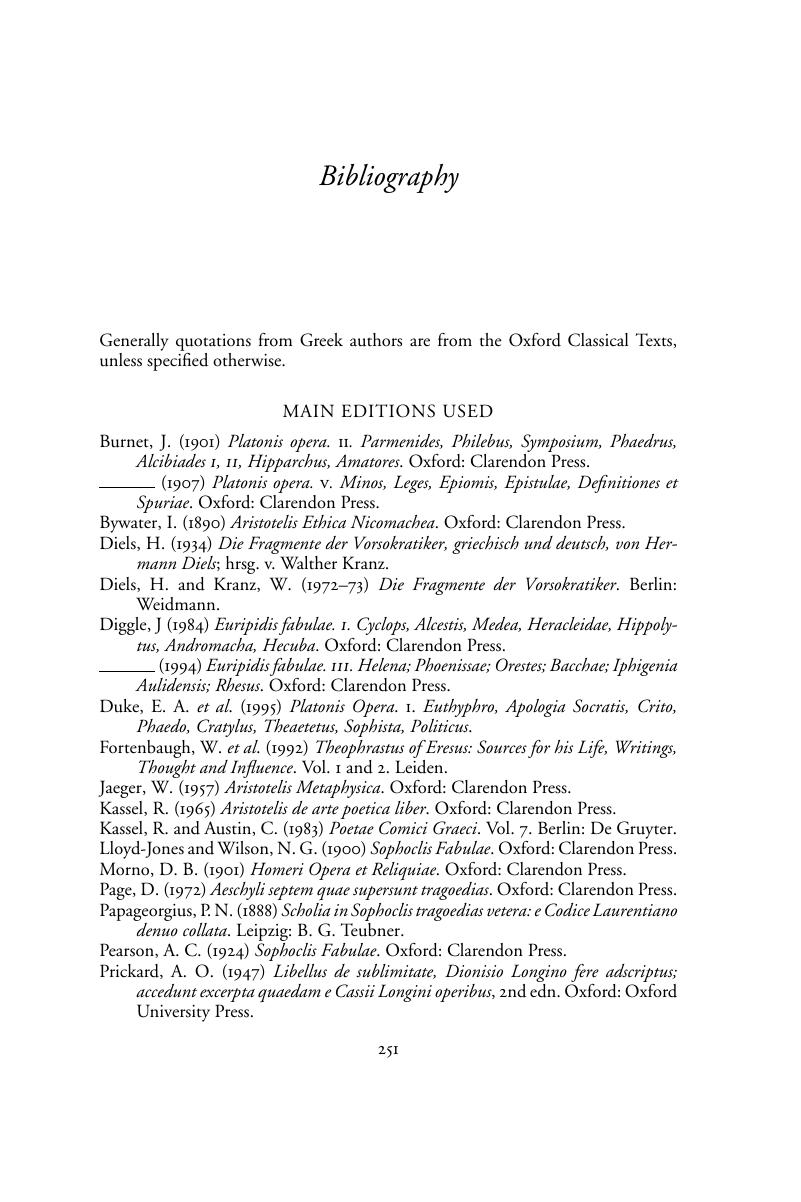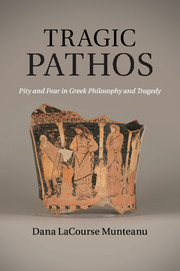Book contents
Bibliography
Published online by Cambridge University Press: 05 December 2011
Summary

- Type
- Chapter
- Information
- Tragic PathosPity and Fear in Greek Philosophy and Tragedy, pp. 251 - 274Publisher: Cambridge University PressPrint publication year: 2011

